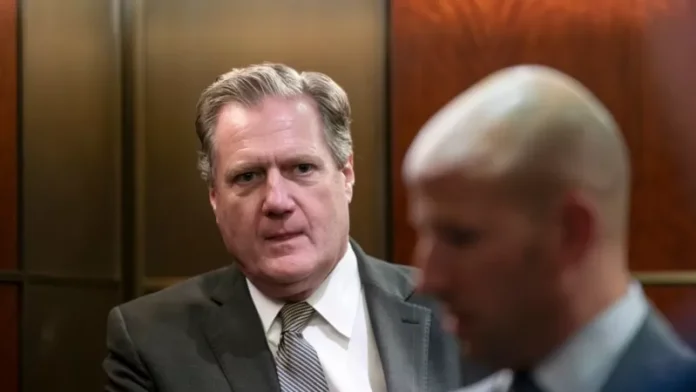Washington – The world was shaken this week by news of Russia’s plans to launch a new, space-based anti-satellite weapon system. The potential consequences of such a system are catastrophic, and many feared that it could lead to global chaos. However, U.S. President Joe Biden has reassured the public that there is still a chance to persuade Moscow to change course.
The news of the Russian threat first emerged on Wednesday, when a top U.S. lawmaker issued a statement warning of a “serious national security threat.” He called for the declassification of the intelligence so that the American public, Congress, and U.S. allies could better understand the situation and formulate a response.
The initial reports suggested that the new Russian system could potentially use nuclear power or nuclear weapons, which only added to the concern. However, President Biden has stated that these fears are unfounded and that there is no imminent danger.
“There is no nuclear threat to the people of America or anywhere else in the world with what Russia is doing at the moment,” Biden told reporters at the White House. “There is no evidence that they have made a decision to go forward with doing anything in space.”
He added, “We found out there was a capacity to launch a system into space that could theoretically do something that was damaging. But it hasn’t happened yet, and my hope is it will not.”
The White House has also emphasized the need for private engagement with Russia before taking any further action. National security communications adviser John Kirby stated that the intelligence community has serious concerns about releasing more information and that private engagement could be a more effective approach.
However, despite reaching out to Russia, the U.S. has not yet secured any conversations on the matter. A Kremlin spokesperson denied that Washington had tried to talk to Russian officials, and Russia has dismissed the U.S. allegations as a “malicious fabrication.”
Kremlin spokesman Dmitry Peskov accused the U.S. of using this situation as a ruse to get U.S. lawmakers to approve a bigger budget. This response only adds to the tension between the two nations.
U.S. intelligence agencies have been warning about Russia and China’s pursuit of anti-satellite weapons for years. They have noted that the development and use of such systems could severely impact U.S. intelligence-gathering abilities.
In its 2023 Worldwide Threat Assessment report, the Office of the Director of National Intelligence stated that Russia continues to “field new anti-satellite weapons to disrupt and degrade U.S. and allied space capabilities.” The report also mentions Russia’s development of non-destructive and destructive counterspace weapons, including jamming and cyberspace capabilities, directed-energy weapons, and ground-based anti-satellite capabilities.
Experts have also pointed out that any advanced anti-satellite technology from Russia could have far-reaching effects on the U.S. military, particularly on troops stationed abroad.
“Our military relies heavily on our space-based capabilities, such as GPS, to navigate and conduct precision operations. If an adversary can take space away from us and deny us the ability to use these systems, they would negate one of our biggest advantages,” said Todd Harrison, a senior fellow at the American Enterprise Institute.
However, U.S. lawmakers who were briefed on the intelligence have expressed confidence in the U.S. approach to the situation. House Intelligence Committee Chairman Mike Turner stated that the administration is taking the matter seriously and has a plan in place. He also assured that they would support the administration in implementing this plan.
The news of Russia’s plans for a new anti-satellite weapon system has caused widespread concern and fear. However, President Biden’s reassurance and the U.S. government’s approach to the situation are a ray of hope. With private engagement and a solid plan in place, there is still a chance to persuade Moscow to change course and prevent any potential harm to the world. Let us hope that this situation can be resolved peacefully and that all nations can work together towards a safer and more secure future.
This article contains information from Reuters and contributions from VOA’s Patsy Widakuswara, Katherine Gypson, and Anita Powell.

